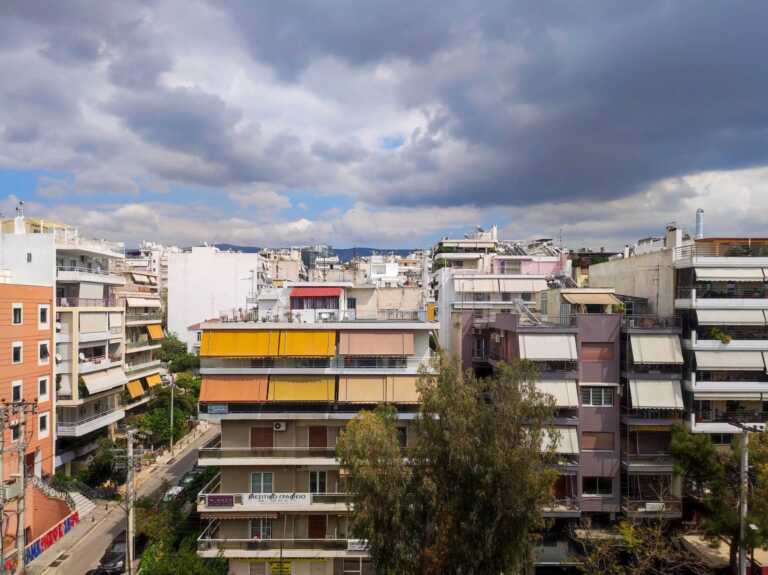To make the 21,000 permits available on the market apartmentswhich they have in their portfolios, the Greek government urges them banksaccording to today’s (07.12.24) publication of Handelsblatt.
It is recalled that last Tuesday (3.12.24), the Minister of National Economy and Finance, Kostis Hatzidakis said that “the big problem at the moment is the problem of rents (including apartments) and that is where we are focusing our attention”adding that “the interventions we will make in relation to the banks will also have such a dimension”.
According to the same publication, during the public debt crisis of the 2010s, Greek commercial banks almost went bankrupt. Meanwhile, the liquidity problems of the crisis era have been forgotten. Financial institutions post record profits and pay dividends again.
This spring, the banks distributed 875 million euros to shareholders from profits in the fiscal year 2023. Next year, they want to distribute around 2 billion euros.
At the same time, in Greece, dissatisfaction with high fees, low deposit rates and restrictive lending by banks is growing.
Prime Minister Kyriakos Mitsotakis has now reduced the issue to a top priority. Twice in the past few days, the Prime Minister has criticized the business practices of banks.
On Monday (2.12.24), he told an investment forum in London: “We know what we expect from the banks and we have the tools to deliver it.” On Thursday (5.12.24), the Prime Minister continued his speech in Parliament: “We asked the banks to respond. Their answers did not satisfy us”, said Mr. Mitsotakis.
The Minister of Economy and Finance Kostis Hatzidakis has been talking to the banks for months about the high commissions and low interest rates on deposits. But the negotiations have not yet borne fruit.
High fees, paltry interest on credit balances
Minister Hatzidakis also increased the pressure. In a radio interview last Thursday, he said banks should “stop getting on the nerves of their customers”. The government “cannot turn a blind eye”, Hatzidakis warned.
This is especially true of the high fees charged by many financial institutions for even small transactions. For example, a transfer of 100 euros between two banks can cost four euros or more. Banks charge €3 to €4 for an incoming transfer within the EU (Single Euro Payments Area, Sepa). There are now plans to cap charges by law.
High fees are just a nuisance. As generous as banks are when it comes to charging fees, they are just as stingy when it comes to interest on deposits. They pay 0.03% on cash. In the eurozone, the average is ten times that, 0.36%. Greek banks pay an average interest rate of 1.86% on term deposits. On average in the eurozone, savers receive 2.97%.
Lots of liquidity, expensive loans
On the other hand, banks charge even higher interest rates on loans. According to the European Central Bank (ECB), consumer loans in Greece cost an average of 10.86% interest in October. The eurozone average was 7.67%. For business loans, Greek banks charged 5.02% in October compared to the eurozone average of 4.57%.
Those who get a loan at all can consider themselves lucky. Banks are silent when it comes to granting loans. This is not due to a lack of liquidity.
In the middle of this year, banks had deposits from businesses and private households totaling 194.8 billion euros. In contrast, the amount of loans granted to the private sector amounted to only 116.5 billion euros.
This puts the loan-to-deposit ratio just under 60%. According to the ECB, the average for the eurozone in the 3rd quarter was 94.5%.
There is a key reason for banks’ reluctance to lend: The non-performing loan ratio stood at 6.9% in the middle of this year, three times the eurozone average, as a result of the sovereign debt crisis, in culmination of which nearly 50% of loans granted were no longer being serviced.
Banks should help alleviate the housing shortage
The Prime Minister Mr. Mitsotakis is now calling on banks to provide more and more favorable loans for small and medium enterprises. He expects banks to take “an active role in supporting the economy”, the prime minister said in London.
It is also pushing for cheaper mortgages to ease the housing shortage. According to a market study, there is a shortage of 212,000 apartments in Greece. The banks have in their portfolios about 21,000 empty apartments, whose owners have not managed to service their loans. The government is urging financial institutions to put these apartments on the market, according to Handelsblatt.
In order to increase the pressure on the banks, the Social Democrat opposition leader Nikos Androulakis is now calling for a special tax on bank profits, like the one already imposed in Spain.
However, the governor of the Greek central bank, Giannis Stournaras, warns against such a thing: “This would set the banks back in terms of the consolidation of their own capital,” the central banker points out.
Prime Minister K. Mitsotakis is also not in favor of this plan. Such special taxes would be “fireworks”, Mitsotakis told Parliament on Thursday. Detailed proposals will be presented to the banks shortly. The prime minister announced: “The government will act now to address the core problems.”
The article Handelsblatt: Greek government urges banks to put their 21,000 empty apartments on the market was published on NewsIT .
